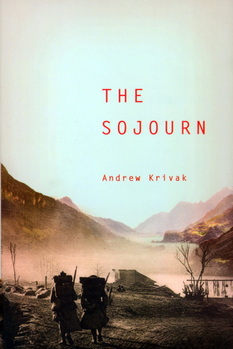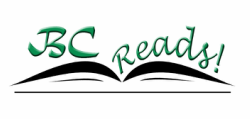
Title: The Sojourn
Author: Andrew Krivak
Genre: Historical Fiction
Pages: 192
Date Published: 2011
Rating: 4 out of 5 stars
Recommended?: Yes
Andrew Krivak, who teaches in the Arts and Sciences Honors Program here at Boston College, is the author of a memoir called (in the United States) The Long Retreat, about his eight years in the Jesuit order. The thread that keeps together that book with The Sojourn, his first novel, is that both are concerned with coming-of-age and the way a young man comes to understand the meaning of relationships in his life.
Set during what was known at the time as The Great War or The War to End All Wars (that is, World War I), The Sojourn is the story of Jozef Vinich, a boy born to Slovak parents in Colorado but who, after the death of his mother, travels back to the old country with his father. It is the story of Jozef's growing understanding of his father and brother, with whom Jozef enters the war as a sharpshooter.
The strength of Krivak's novel is its evocation of detail during a period many Americans know little about. Krivak's story is based in part on his own family's history—Krivak himself is the grandson of Slovakian immigrants to the United States. It is a story of survival, as Jozef has to negotiate the horrors of war and the confusion inherent in being part of an army made up of Austrians, Hungarians, Slovaks, and others whose language and culture differ. But it is also a story of wanting to return home after the war, a desire to reconnect with his roots and recover a sense of identity and purpose in life.
This is a short but rewarding read, a story whose images stay with the reader. The winner of the first Chautauqua Prize and the Dayton Literary Peace Prize, and finalist for the National Book Award, The Sojourn is an excellent choice both for men and the women who might want a glimpse inside the psyche of a man suffering through what is (at least since the Iliad) the literary crucible of male identity formation—namely, war.
Review by Tim Muldoon, theologian and author of several books, who works in the Division of University Mission and Ministry at Boston College.
Author: Andrew Krivak
Genre: Historical Fiction
Pages: 192
Date Published: 2011
Rating: 4 out of 5 stars
Recommended?: Yes
Andrew Krivak, who teaches in the Arts and Sciences Honors Program here at Boston College, is the author of a memoir called (in the United States) The Long Retreat, about his eight years in the Jesuit order. The thread that keeps together that book with The Sojourn, his first novel, is that both are concerned with coming-of-age and the way a young man comes to understand the meaning of relationships in his life.
Set during what was known at the time as The Great War or The War to End All Wars (that is, World War I), The Sojourn is the story of Jozef Vinich, a boy born to Slovak parents in Colorado but who, after the death of his mother, travels back to the old country with his father. It is the story of Jozef's growing understanding of his father and brother, with whom Jozef enters the war as a sharpshooter.
The strength of Krivak's novel is its evocation of detail during a period many Americans know little about. Krivak's story is based in part on his own family's history—Krivak himself is the grandson of Slovakian immigrants to the United States. It is a story of survival, as Jozef has to negotiate the horrors of war and the confusion inherent in being part of an army made up of Austrians, Hungarians, Slovaks, and others whose language and culture differ. But it is also a story of wanting to return home after the war, a desire to reconnect with his roots and recover a sense of identity and purpose in life.
This is a short but rewarding read, a story whose images stay with the reader. The winner of the first Chautauqua Prize and the Dayton Literary Peace Prize, and finalist for the National Book Award, The Sojourn is an excellent choice both for men and the women who might want a glimpse inside the psyche of a man suffering through what is (at least since the Iliad) the literary crucible of male identity formation—namely, war.
Review by Tim Muldoon, theologian and author of several books, who works in the Division of University Mission and Ministry at Boston College.

 RSS Feed
RSS Feed
